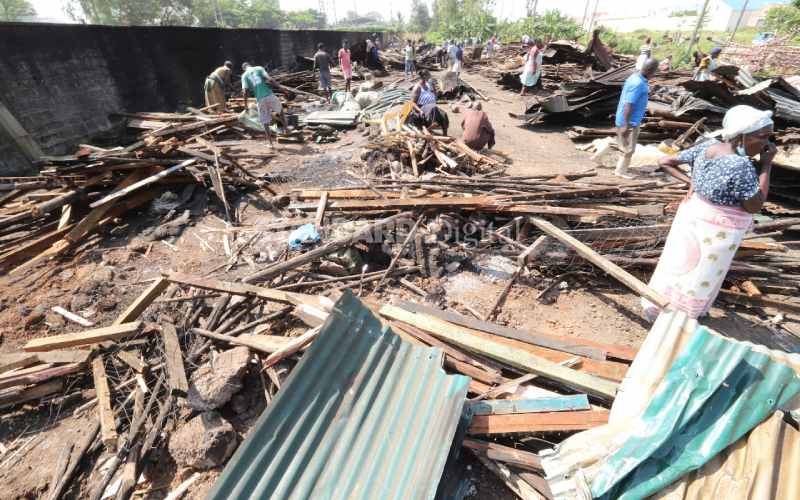×
The Standard e-Paper
Smart Minds Choose Us

Traders at Obunga fish market in Kisumu on Friday tried to salvage what remained of their stalls after the Kisumu County government bulldozers descended on the market.